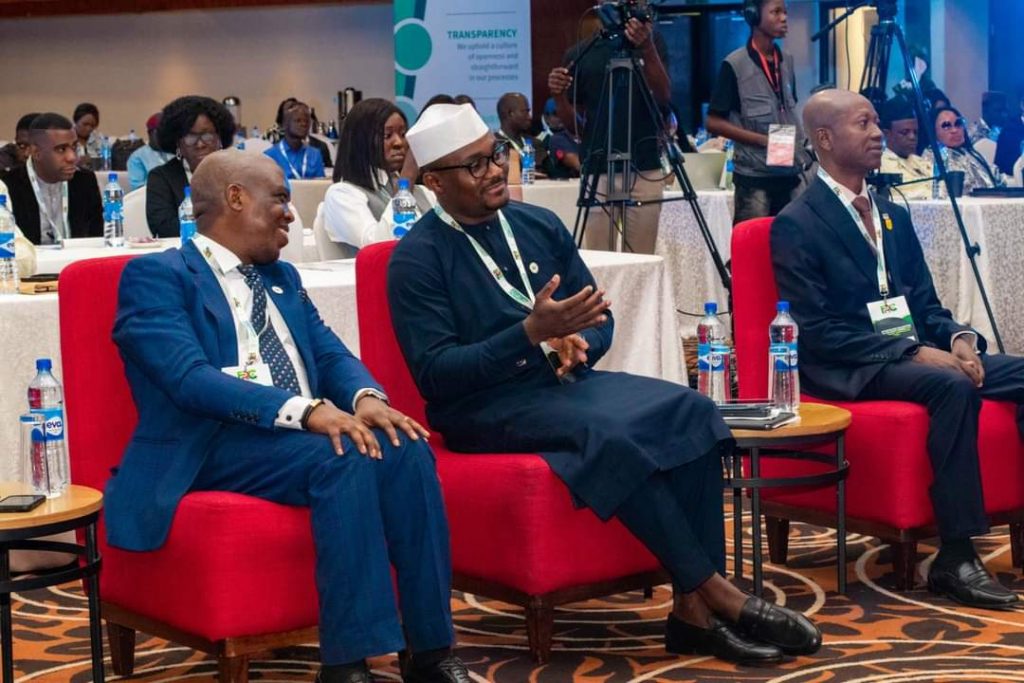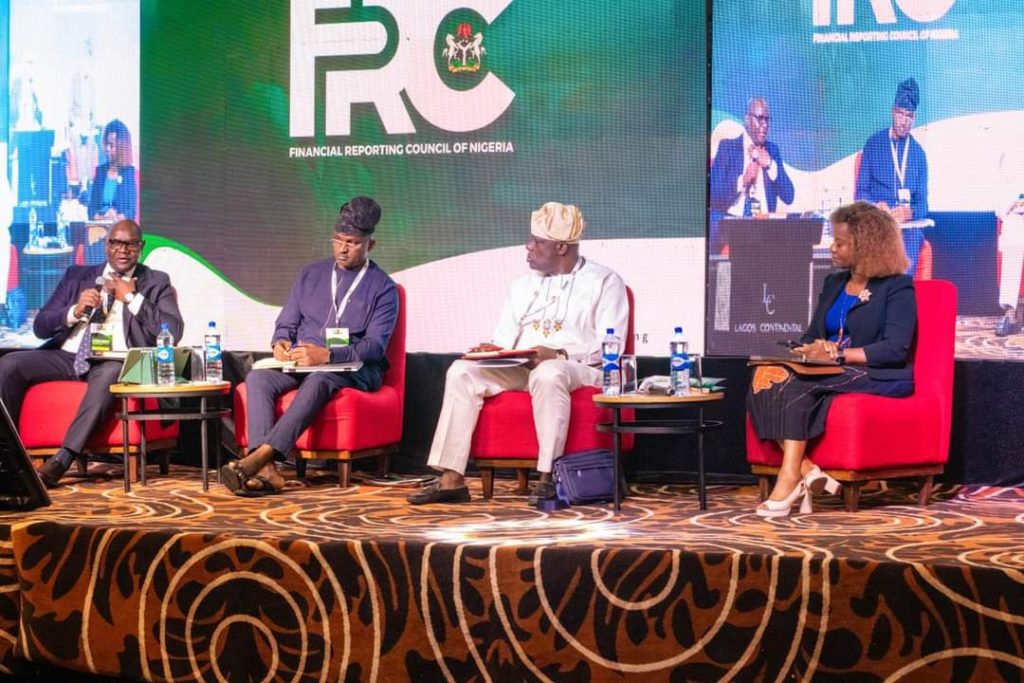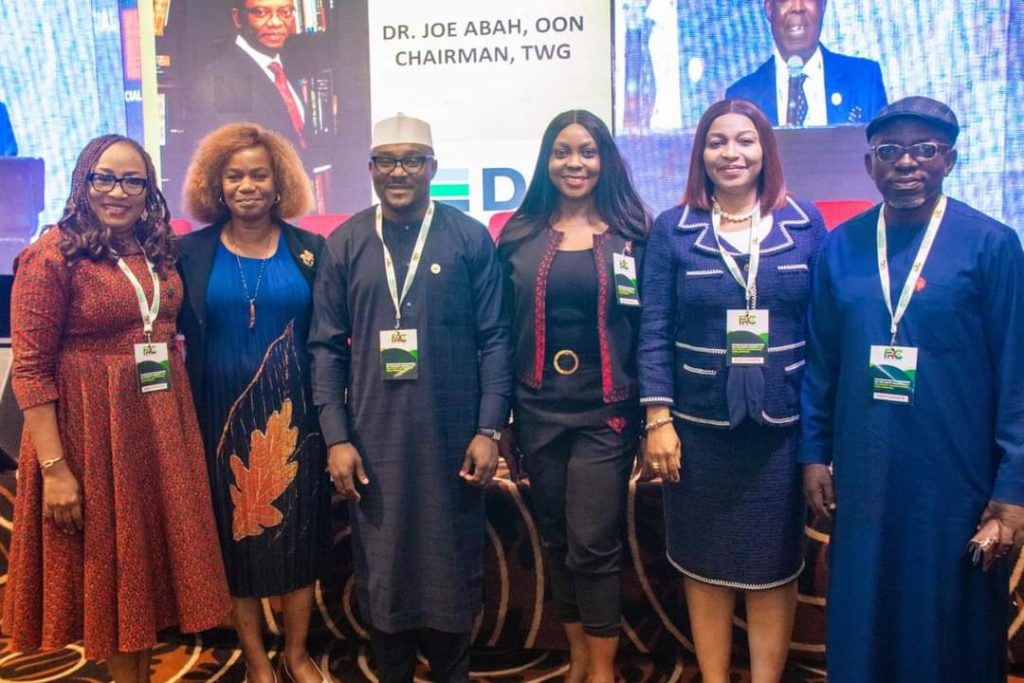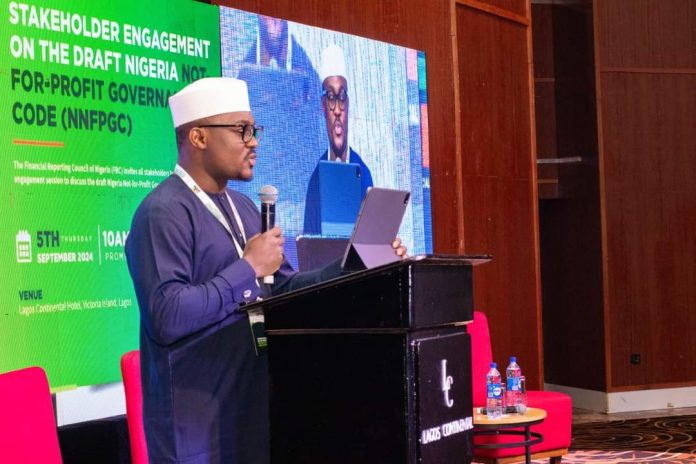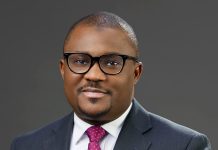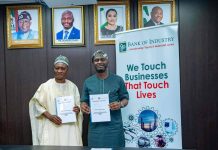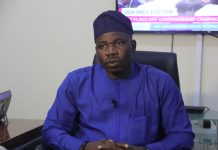The Lagos Continental Hotel played host to a pivotal Stakeholder Engagement event today, focusing on the Draft Nigeria Not-for-Profit Governance Code (NNFPGC). This gathering marked a crucial stage in the development of governance standards for the country’s not-for-profit sector, as key stakeholders from diverse sectors gathered to shape the future of governance for charitable, educational, professional, and religious organizations, among others.
The event opened with remarks from Mr. Titus Osawe, Coordinating Director of the Directorate of Corporate Governance and Directorate of Inspections & Monitoring, who emphasized the importance of stakeholder contributions in the formulation of governance codes. Mr. Osawe acknowledged the presence of the Technical Working Group (TWG) responsible for drafting the NNFPGC, underscoring the Council’s commitment to a participatory process.
Dr. Rabiu Olowo, Executive Secretary/CEO of the Financial Reporting Council of Nigeria, delivered the keynote address, highlighting the significance of the engagement. “The success of this Code hinges not just on its content, but on the collective wisdom and experiences of those it seeks to guide,” Dr. Olowo remarked. He stressed the role of the Code in helping not-for-profit organizations better serve their communities and stakeholders, while achieving their organizational mandates.
The Technical Working Group, represented by its Chairman, Dr. Joe Abah, alongside Deputy Chairperson Ms. Ayotola Jagun and member Mr. Oluseyi Oyebisi, presented an in-depth overview of the draft Code. They touched on essential elements such as the need to build resilient institutions, promote effective governance, and foster transparency and accountability within the sector.
Stakeholders from prominent organizations including the Christian Association of Nigeria (CAN), Nigerian Supreme Council for Islamic Affairs (NSCIA), civil society organizations (CSOs), and professional bodies like the Institute of Chartered Accountants of Nigeria (ICAN) and the Nigerian Bar Association (NBA) were present. Representatives from regulatory bodies, charitable institutions, educational organizations, and trade unions actively participated in the discussions, contributing to a dynamic dialogue that enriched the draft document.
The diverse audience engaged in meaningful discussions, asking thought-provoking questions and receiving detailed responses from the presenters. The contributions from this wide range of stakeholders will be instrumental in refining the governance code to meet the needs and realities of the not-for-profit sector in Nigeria.
Dr. Olowo reflected on the lessons learned from the 2016 suspension of previous governance codes, emphasizing the need for broader stakeholder involvement this time around. He reiterated that the NNFPGC aims to be a practical tool for boards and management teams of not-for-profit organizations, promoting ethical, transparent, and effective management practices.
The event concluded with an expression of gratitude to all participants for their invaluable input. “Together, we are shaping a more transparent and accountable future for Nigeria’s not-for-profit sector,” Dr. Olowo stated. The finalized governance code is expected to enhance the sustainability and effectiveness of not-for-profit organizations across the country, ensuring they continue to serve their communities and stakeholders with integrity and purpose.
Below are photos from the event;
